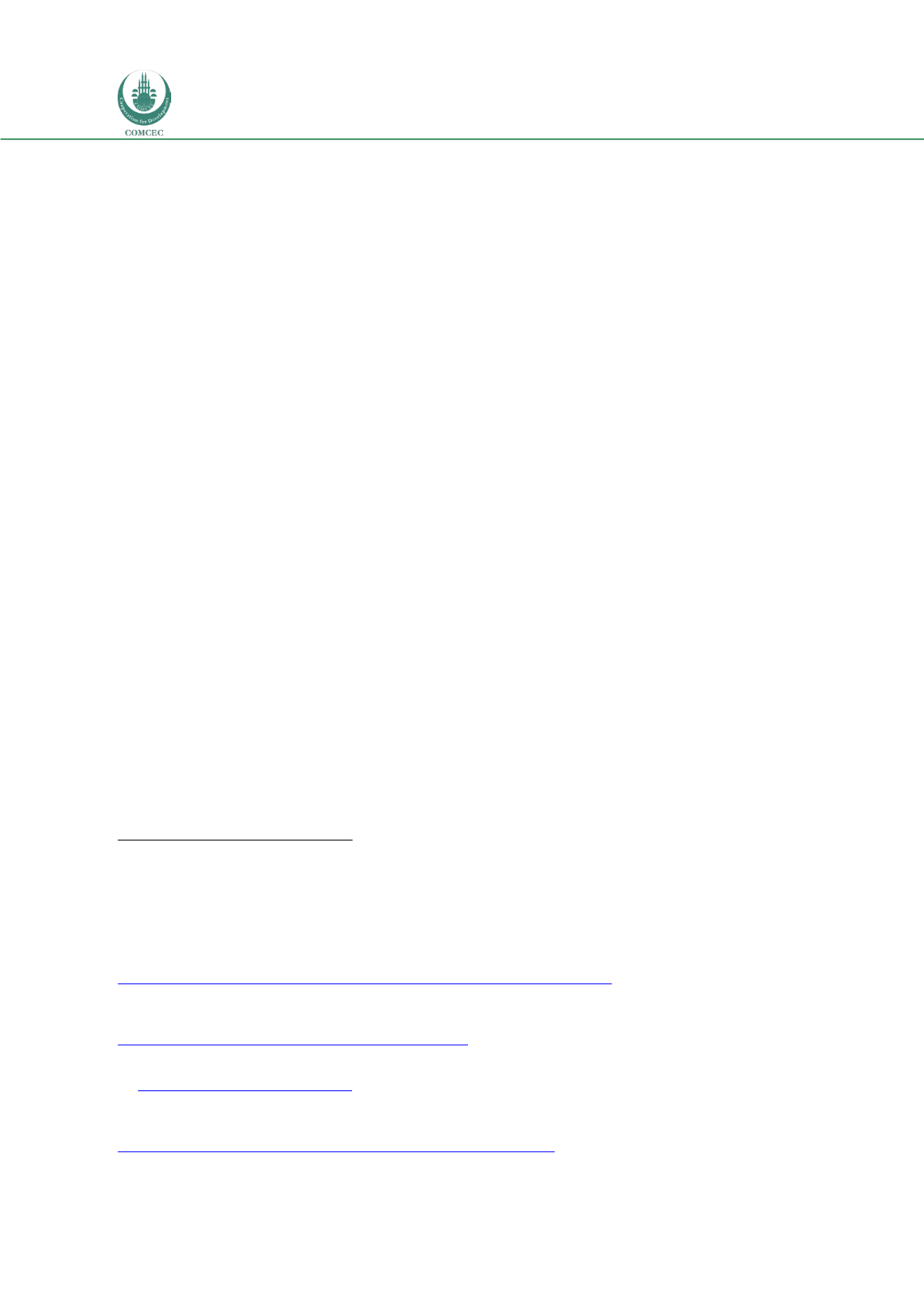

Forced Migration in the OIC Member Countries:
Policy Framework Adopted by Host Countries
120
status is determined—namely, the right to be informed on their rights throughout the
procedure, the right to residency during the procedure, the right to have an interpreter, and
the right to a lawyer.
338
Regional Cooperation on Migration
Morocco holds a key strategic position in managing migration flows between Africa and
Europe. Regional cooperation within North Africa remains minimal, however, and Morocco’s
relations with its neighbors have been strained over the question of Western Saharan
independence.
339
Though Morocco proposed the creation of an African Alliance for Migration
and Development at the United Nations’ High-level Dialogue on International Migration and
Development (HLD) in 2013, the idea has failed to gain any traction.
340
Some have expressed
concern over this lack of North African solidarity, arguing that Morocco’s proposed national
legislation will not be effective if it stands alone and is not embedded in a larger regional
migration strategy.
341
Conversely, Morocco has developed a strong working relationship with the European Union in
the field of migration. Two major platforms for this cooperation are the Rabat Process, created
in 2006, and the EU-Africa Partnership on Migration, Mobility, and Employment, launched in
2007.
342
Both of these initiatives seek to facilitate a dialogue between the countries of the EU,
North Africa, and sub-Saharan Africa on issues such as human trafficking, remittances, labor
migration, irregular migration, and protection issues.
343
Partnership between the EU and
Morocco has two dimensions: support and preferential treatment from the EU, and Moroccan
cooperation in controlling unauthorized migration flows.
Recognizing Morocco’s role as a major source and transit country of European immigrants, the
EU has worked to cement its partnership with Morocco through a series of economic
incentives that aim to boost the country’s development. To this end in 1996, the European
Union and Morocco signed a European Mediterranean Association Agreement with the intent
of establishing a free trade zone in the future.
344
Morocco has enjoyed tariff-free trade with the
EU for many products since 2000, and negotiations for a Deep and Comprehensive Free Trade
Agreement (DCFTA) were launched in 2013.
345
These economic incentives for Morocco have been enacted in tandem with greater efforts to
curb irregular migration to Europe. Morocco has signed bilateral readmission agreements for
338
Ibid.
339
The two major regional economic communities in North Africa, the Arab Maghreb Union and the Community of Sahel-
Saharan States, both pale in comparison to other organizations such as ECOWAS or the EAC. The Arab Maghreb Union has
not met since 2008, and neither organization has been able to enact tangible steps towards regional integration. This is
partially due to long-standing political disputes between Algeria and Morocco, stemming from a territorial disagreement
that led to the Sand War of 1963. This distrust was deepened by the conflict over Western Sahara: Morocco has claimed the
territory as its own, while Algeria actively backed the Polisario Front that sought Western Saharan independence. Stratfor,
“Bad Blood Still Flows Between Algeria and Morocco,” updated May 3, 2016,
https://www.stratfor.com/analysis/bad-blood-still-flows-between-algeria-and-morocco .340
Interview conducted by Natalia Banulescu-Bogdan, Rabat, March 2016
341
Interview conducted by Natalia Banulescu-Bogdan, Rabat, March 2016
342
European Commission, “The European Union’s cooperation with Africa on migration,” (press release April 22, 2015),
http://europa.eu/rapid/press-release_MEMO-15-4832_en.htm343
European Commission, “The European Union’s cooperation with Africa on migration.”
344
Helmut Reifeld,
Emigration, Transit and Host Country: Migration in Morocco
, (Berlin: Konrad Adenauer Stiftung, 2015),
51
, http://www.kas.de/wf/en/33.40711/345
Such negotiations are important, as the European Union is Morocco’s largest trading partner. Total trade between the
two entities amounted to approximately €29.25 billion in 2014. de Haas, “Morocco: Setting the Stage for Becoming a
Migration Transition Country?”; European Commission, “Trade: Morocco,” updated April 29, 2016,
http://ec.europa.eu/trade/policy/countries-and-regions/countries/morocco/ .















